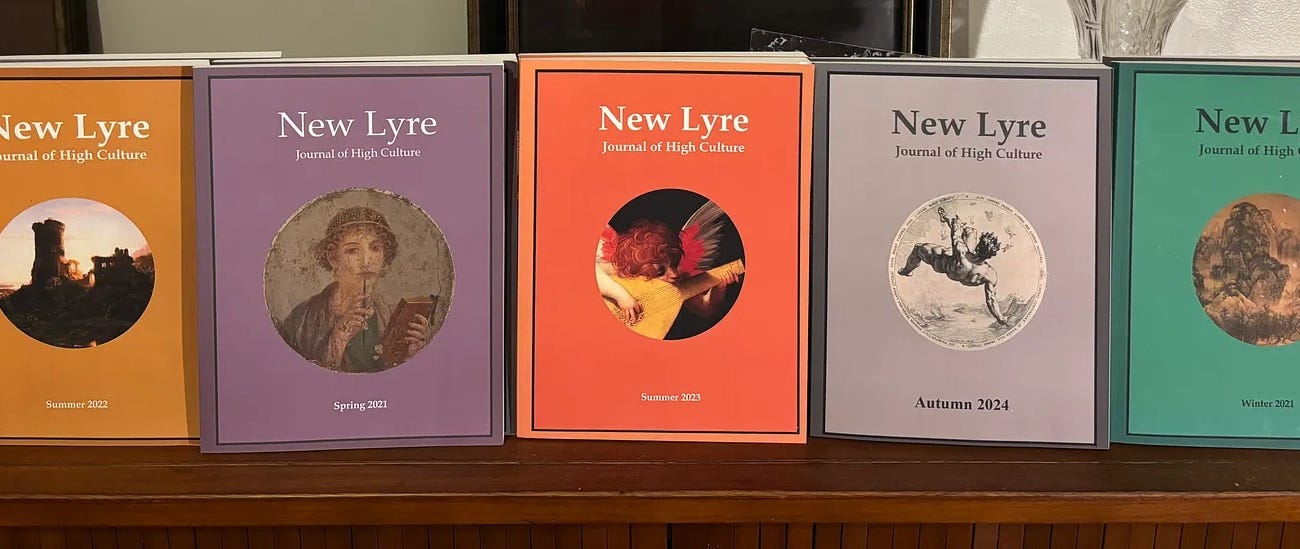Featured in New Lyre - Spring 2021
Polycrates (/pəˈlɪkrəˌtiːz/; Greek: Πολυκράτης), son of Aeaces, was the tyrant of Samos from the 540s BC to 522 BC. He had a reputation as both a fierce warrior and an enlightened tyrant.
He stood upon the ancient battlements,
And surveyed Samos from the parapets,
Rejoicing in his unchecked reign.
“This whole realm bends beneath my iron yoke,”
Declared the tyrant to the Pharaoh king.
“My fortune cannot be contained.”
“You have been truly favored by the gods;
Those enemies with whom you were at odds
Now recognize your majesty.
And yet, there remains one who can avenge
Them—I won’t call you blessed until you’ve purged
This final watchful enemy.”
And while he lent his ear to Egypt’s king,
A herald from Miletus scrambled in
With tidings for Polycrates.
“Let us rejoice and let the incense rise,
And celebrate as we unveil your prize
Won in the latest victories!
“Your enemy has fallen by the sword,”
The herald gushed, “Your marshal, Polydore,
Has sent me to convey the news.”
And then he reached into a mantled chest—
A grotesque sight for his distinguished guest—
The enemy’s gored, blood-stained face.
Startled before the sanguinary head,
The king warned, “True joy and luck never wed,”
“Recall your many fleets still far away,
Rocking upon the sea’s unfaithful waves;
How quickly Fortune’s graces tend to fade
When gliding on capricious seas.”
Before the king could finish his last word,
Jubilant shouts erupted on the shore,
Where one saw all the fleets arrive:
Rich treasure-laden hulls from foreign lands
Floated onto the gleaming, sea-soaked sands,
With all their crewmen still alive.
The regal guest looked on disbelief,
“You’ve benefited from rich Fortune’s gifts,
But one should fear luck’s fickleness.
The Cretan army now approaches
And is prepared to wage an awesome war—
They’re fast approaching on your beaches.”
But as the words fell from his royal lips,
A vicious gale began to strike their ships;
And soon, a voice cried out, “Victory!
The Cretan legions are defeated now—
Swept away in Poseidon’s fit of rage—
We’ve sunk our final enemy!”
The old Egyptian spoke with great emotion,
“Indeed, you’ve reaped the gifts of Fortune.
“But,” said he, “Doubtful are the odds—
A certain Fate is closing in on you.
For wondrous fortunes oft belie the true
Sublime intention of the gods.
“All of my enterprises have been blessed
By the almighty hands of gods and graced
With well-earned accolades and fame.
Although, I did once have a precious heir—
God seized him from my arms and let him expire.
Thus all I have I’ve rightly gained.”
“If you wish to escape ruin’s fateful blows
And allay dwindling fortune’s certain woes,
Pray for misfortune, for your sake!
No mortal man is showered with such luck;
And the gods never share their power
Without some equalizing fate.”
“And if the gods refuse your dire appeals,
Take counsel from your faithful friend and heel:
Seek out misfortune willingly.
What in this kingdom do you cherish most?
Offer it quick to the immortal host.
Find it and throw it in the sea!”
Now moved to fear by his ominous words,
Polycrates replied, “Within this world,
This ring is what I hold most dear.
I pledge this golden ring to the Erinyes
And pray that they’ll forgive my happiness.’’
He cast the ringlet to the sea.
By the next morning’s rosy dawn, there came
Before the prince a fisherman who exclaimed
With a face brightly lit by joy.
“My king, I have caught the rarest fish,
A gift for you beyond the seaman’s wish.
Happy to be in your employ.’’
As the head cook opened the fish up
He marveled at what he discovered.
He jumped and screamed and loudly cheered.
“Your highness, this is the self-same ring
In the fish, the one I saw you fling
Into the seas—it has appeared!”
The anxious king turned to Polycrates,
“I cannot remain here any longer”
The king looked on the prince with dread.
”And we cannot be friends—the gods are keen
On retribution—your end is guaranteed.”
The monarch spoke then quickly fled.
Translation © David B. Gosselin
Reflections on Ideal Science and Art: Schiller’s “Archimedes and the Student”
We’ll be publishing regular new translations and analysis of Friedrich Schiller’s work for our subscribers. We begin this new year with reflections on the ideal of science and art, as explored in Schiller’s “Archimedes and the Student.”
The Proverbs of Confucius by Friedrich Schiller
The stripling sets sail on the ocean with a thousand masts.
Read New Lyre Magazine
Click on the cover of any issue to order New Lyre Magazine directly from Amazon. Subscribers can access the full archive at the bottom of this page.









